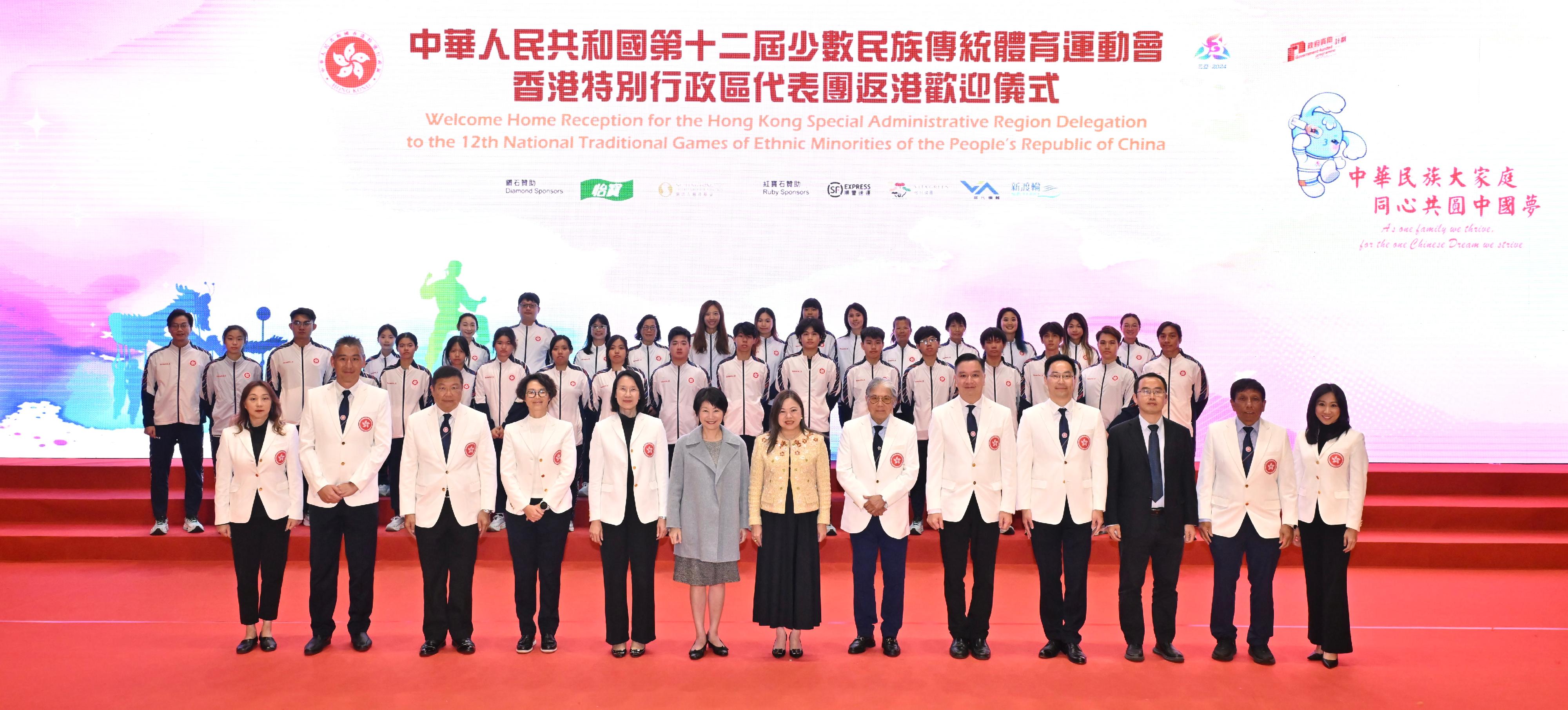The Chief Executive in Council (CE in C) today (December 17) considered the fare increase applications from franchised bus operators, and decided that:
(a) fares of the Kowloon Motor Bus Company (1933) Limited (KMB) should be increased by an overall actual weighted average rate of 4.3 per cent after a 0.9 percentage points (ppts) mitigation effect by its Franchised Bus Toll Exemption Fund (TEF) (i.e. 5.2 per cent before mitigation);
(b) fares of Citybus Limited (Franchise for the Urban and New Territories bus network) (CTB(U&NT)) should be increased by an overall weighted average rate of 7.5 per cent;
(c) fares of New Lantao Bus Company (1973) Limited (NLB) should be increased by an overall weighted average rate of 6.5 per cent; and
(d) the fare increases in (a) to (c) above should be implemented on January 5, 2025.
The fare increase applications and the decision of the CE in C are summarised in the table at the Annex. A Government spokesman said that the Government has duly exercised its gatekeeping role by exerting considerable efforts to carefully and rigorously scrutinise the fare increase applications from franchised bus operators. The decision of the CE in C endeavoured to minimise impacts on livelihood on one hand, and on the other also take into account the financial sustainability of franchised bus operators, with a view to enabling the franchised bus operators to continue to provide reliable and safe services to citizens. Upon the implementation of the new fares on January 5, 2025, about four-fifths of passengers are expected to pay no more than $0.5 extra per trip and about 95 per cent of passengers are expected to pay no more than $1 extra per trip.
During the approval process, the Government has examined the operating situation of the franchised bus industry, forecast financial performance, indices relevant to public affordability, as well as quality and quantity of their bus services. The Government has also exempted franchised bus operators from paying tolls when using government tolled tunnels and control areas since February 2019. The Tunnel Exemption Funds set up with the tolls saved has continued to perform its function, and effectively reduced the rate of fare increase of KMB this time.
A Government spokesman said, "Although patronage and revenue of franchised buses have bounced back noticeably after the epidemic, they are unable to fully recover to the pre-epidemic level due to reasons such as changes in travelling and consumption patterns. Further, franchised bus operators need to maintain reasonable remuneration packages to attract a high-quality workforce, as well as make investments in transition to a new energy bus fleet. The Government has been assisting franchised bus operators in making substantial efforts to improve operational sustainability over the past few years, including broadening sources of non-farebox revenue, and enhancing operational efficiency through rationalisation of bus routes having regard to latest patterns of passenger demand. After careful consideration of the overall situation, the Government is satisfied that suitable adjustments to fares are necessary to help the franchised bus operators to maintain reasonable financial capability to continue to operate and invest."
The spokesman continued, "There had been few increases in franchised bus fares for a period in the past. Over the longer horizon, the cumulative rates of fare increases are still noticeably lower than changes in the Composite Consumer Price Index (CCPI) and other indices within the corresponding period. Taking the figures since mid-2008 as an example, after including the fare increases approved this time, the cumulative fare increases of the three franchises over the some 16 years averaged 1.6 per cent to 2.2 per cent on a yearly basis, while the cumulative change in the CCPI averaged 3 per cent on a yearly basis and the cumulative change in Median Monthly Household Income averaged 4.2 per cent on a yearly basis."
In arriving at the actual fare increase rates of individual routes, the Government has looked into the service nature and existing fare levels of these routes and made appropriate adjustments to effect relatively lower rates of increases on routes for daily commuters to minimise the impact of fare increases on the public. To mitigate the pressure for fare increases, the Government will continue to assist and guide franchised bus operators to raise revenue and reduce expenditure through a multipronged approach, including further expanding sources of non-farebox revenue, introducing tourist services routes with premium features to grasp opportunities presented by the multiple-entry Individual Visit Scheme, as well as enhancing the operational efficiency of bus networks through improving and rationalising bus routes having regard to latest situation of passenger demand.
The Government has been implementing the Public Transport Fare Subsidy Scheme (PTFSS) to relieve the fare burden of passengers who travel on local public transport services for daily commuting and whose public transport expenses are relatively high; whereas the Government Public Transport Fare Concession Scheme for the Elderly and Eligible Persons with Disabilities (i.e. the $2 Scheme) would also benefit elderly passengers and eligible persons with disabilities. The Government is reviewing the mode of operation of the two schemes with the aim to enable continued provision of the schemes in a financially sustainable manner.
According to the Fare Adjustment Arrangement for Franchised Buses agreed by the CE in C, the Government has taken into account a basket of factors in assessing the bus fare adjustments:
(a) changes in operating costs and revenue since the last fare adjustment;
(b) forecasts of future costs, revenue and return;
(c) the need to provide the franchisee with a reasonable rate of return;
(d) public acceptability and affordability;
(e) the quality and quantity of service provided; and
(f) the outcome of the supportable fare adjustment rate formula. The formula is only for reference and will not operate as an automatic determinant of the rate of fare adjustment.
In considering the fare increase applications of the franchised bus operators, the CE in C has, based on the above-mentioned arrangements, examined the cases holistically and fully considered the views of the Panel on Transport of the Legislative Council and the Transport Advisory Committee.


